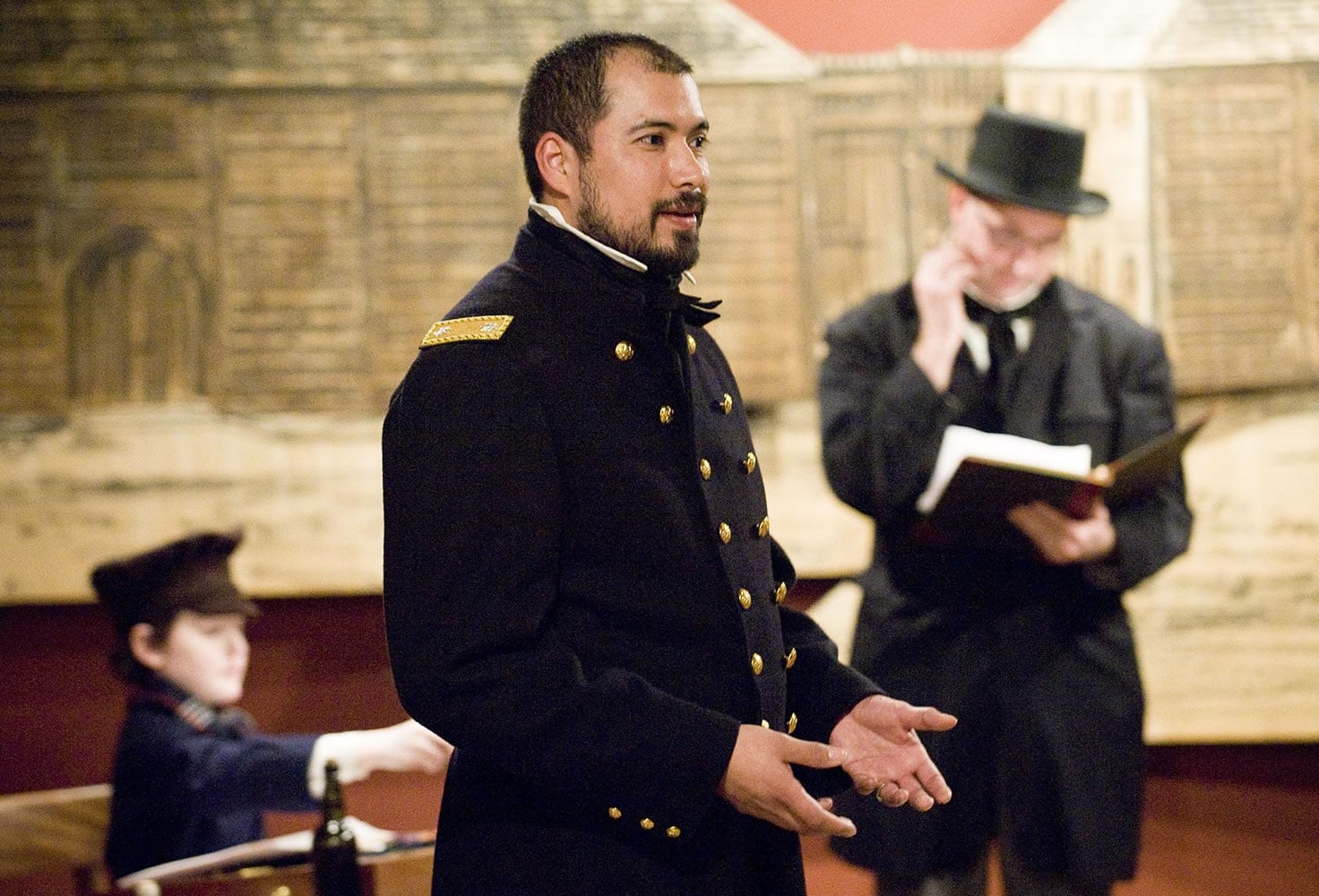Connor Wier clutched a quill pen in his left hand as he carefully inked characters onto a tiny postcard. Returning the pen to a glass inkwell, he dipped and wrote, dipped and wrote, finally blotting his work with a tiny bit of sand.
The 13-year-old Vancouver boy said he was no stranger to writing by hand. But in a generation where mobile text messages, e-mail and social media posts have supplanted the handwritten word, he and others paused to remember the role writing played in local history.
Sunday’s program at the Fort Vancouver National Historic Site was the first time the link between literacy and local history had been explored. In addition to hands-on opportunities, original letters and postcards from the fur-trading days through World War I were on display, and two short plays examined true stories about two documents with local connections.
In the first days after European settlement, literacy was the dividing line between the Hudson’s Bay Co. elite and the common laborers, said Aaron Ochoa, a National Park Service ranger who helped present the program. Clerks and the managers above them could read and write. Most of their labor force could not.
“Literacy was one of the things that separated the classes,” said Ochoa. With the ability to write came higher pay and a better standard of living at Fort Vancouver, then an outpost of the London-based Hudson’s Bay Co. fur trading empire.
Not that messages were easily sent and received. A letter, sent to London around Cape Horn with the yearly shipment of furs, could take three years to be answered.
In fact, some letters from that era survive that were never received by the addressee, who had died sometime over the course of the long transit time.
A letter to Alan
To bring some of that era to life, volunteer re-enactors staged a short play in which a real Fort Vancouver letter was used. The letter, apparently from a young woman to someone named Alan, discussed the difficulty of a long separation, loneliness and a life-threatening case of “the fever.”
But the letter was not addressed, and was likely never received.
A second sketch presented Sunday looked at a letter sent many years later, after the British fur trading post gave way to the U.S. Army outpost.
One of the things that survived from the fur trading era into the pre-Civil War days was Chinook Jargon, a sort of local mash-up of languages spoken here, and only here. A patois of English, French, Sandwich Island (now Hawaii) and Native American languages, it was a way for people who gathered here from around the world to understand each other. And that Chinook Jargon was the focus of this second sketch.
Ochoa played the part of Gen. Ulysses S. Grant, summoned during the Civil War to the office of Edwin M. Stanton, Lincoln’s Secretary of War. Dan Ochoa, Aaron’s father, played the part of the authoritarian secretary, who was concerned that Union generals traded insider information to enrich themselves in the stock market.
So when he was presented with a letter to Grant from Gen. Rufus Ingalls apparently written in code, he demanded an explanation: What was this?
Grant took the letter, and examined it. He read it, and explained that he and Ingalls were old friends from their Vancouver Barracks days, and used the code to talk earnestly among friends. And the translation?
“Send me another half-barrel of that same whiskey!”
At that, the usually humorless Stanton burst out laughing. (But he apparently verified the translation some time later with another Chinook Jargon speaker).
Ochoa said the story was told about Grant for years, with the general’s — and later president’s — approval.
Craig Brown: 360-735-4514; craig.brown@columbian.com.




